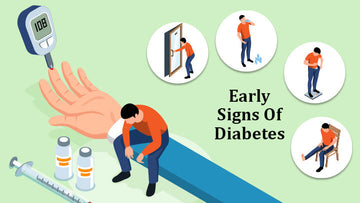Understanding and managing Diabetes

What is Diabetes?
Diabetes is characterized by high blood sugar levels due to the body's inability to produce or properly use insulin, a hormone that helps glucose enter the cells for energy. When this process doesn't work properly
, glucose builds up in the blood stream, leading to high blood sugar levels.
Types of Diabetes.
* Type 1 Diabetes : An autoimmune condition where the immune system attacks insulin-producing beta cells in the pancreas. This type is typically diagnosed in children and young adults, though it can appear at any age. Individuals with type 1 Diabetes require insulin therapy to manage their blood sugar levels.
*Type 2 Diabetes : A condition where the body becomes resistant to insulin or doesn't produce enough insulin. It is often associated with lifestyle factors such as obesity, inactivity and poor diet. Type 2 diabetes can develop at any age but is more common in adults.
* Gestational Diabetes : Develops during pregnancy and typically resolves after Childbirth, but it increases the risk of developing type 2 diabetes.
Symptoms of Diabetes
✓ Frequent urination
✓ Excessive thirst and hunger
✓ Unexplained weight loss
✓ Fatigue
✓ Blurred vision
✓ Delayed wound healing
✓ Frequent infections
✓ Tingling or numbness in the hands or feet
Diagnosis of Diabetes
✓ Fasting blood sugar test : Measures blood sugar after fasting overnight
✓ HbA1c test : Provides and average blood sugar levels over the past 2 to 3 months.
✓ Oral glucose tolerance test : Measures blood sugar before and after drinking a sugary drink.
Managing Diabetes
Effective diabetes management involves a combination of lifestyle changes, meditation and regular monitoring of blood sugar levels.
Healthy eating, regular exercise, stress management plays a pivotal role in management of diabetes.
Complications of Diabetes
If not managed properly diabetes may lead to several complications like
✓ Cardiovascular disease
✓ Diabetic neuropathy
✓ Diabetic Nephropathy
✓ Diabetic retinopathy
✓ Foot ulcers and infections
✓ Skin conditions
✓ Compromised oral health






